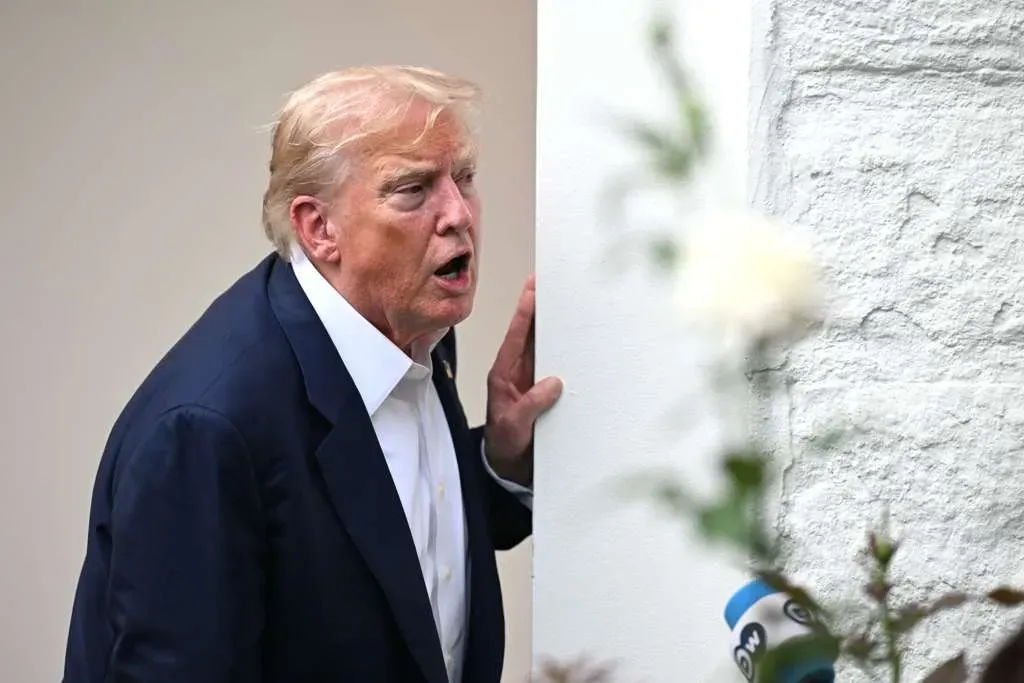Advertisement|Remove ads.
Trump Secures 'Full And Complete' Trade Deal With South Korea, Unlocking $350B Investment Framework

As the Aug. 1 tariff deadline approaches, South Korea has become the latest nation to strike a trade deal with the U.S., ending the uncertainty over the trade deal limbo.
Announcing the deal on his Truth Social account, President Donald Trump said he was pleased to announce that the U.S. has agreed to a “Full and Complete Trade Deal” with South Korea.
“We have agreed to a Tariff for South Korea of 15%,” the president said, adding that America will not be charged a tariff.
The development spurred buying interest in Korean stocks, with the Kospi rising 0.47% in early trading on Thursday. The Korean Won also rose against the U.S. and was last trading up 0.04%.
While the SPDR S&P 500 ETF (SPY), a measure of broader U.S. market performance, has gained nearly 9% this year, the iShares MSCI South Korea ETF (EWY) has surged up about 45%.
The trade agreement also provides for South Korea:
- Giving Washington access to $350 billion for investments owned and controlled by the U.S.
- Purchasing $100 billion worth of LNG, or other energy products’
- Investing a large sum of money in the U.S.
- Opening up its market for trade with the U.S.
- Accepting American products such as cars and trucks, agricultural products, etc
Trump said the size of the proposed investment will be announced in the next two weeks when South Korean President Lee Jae Myung visits the White House for bilateral talks.
South Korea is the United States' sixth-largest trading partner. Following Japan’s trade deal, which lowered the levy to 15% on exports to the U.S., South Korea was under pressure to negotiate a rate equal to or lower than this. In the event of a “no-deal,” a 25% rate would have applied, starting in August.
A Bloomberg report, quoting U.S. Trade Representative Jamieson Greer, said the discounted rate would apply to automobile exports from South Korea but not to steel and aluminum exports.
Details of the deal were not yet fully clear. After Trump’s announcement, Lee reportedly said in a Facebook post: “Through this agreement, the government has eliminated uncertainties in the export environment and created conditions for our companies to compete on equal or superior terms with major countries."
He also highlighted shipbuilding, semiconductors, secondary batteries, biotechnology, and energy as areas where the country would invest.
Yonhap reported that Kim Yong-beom, the presidential chief of staff for policy, told reporters that South Korea did not agree to further open its markets in rice and beef, which have remained contentious issues.
Earlier in the day, Trump also stated that the U.S. had concluded a trade deal with Pakistan, with both countries agreeing to collaborate on developing the Asian nation’s massive oil reserves. In the post announcing the deal, he expressed hopes that the U.S. could begin selling oil to India, which currently relies on Russia for its oil needs.
The president also pressured India to budge, threatening a 25% rate and further penalties if it didn’t agree to a deal by Aug. 1.
For updates and corrections, email newsroom[at]stocktwits[dot]com.
Read Next: Wingstop Soars 27% On Upgraded Growth Outlook, Retail Turns Extremely Bullish












/filters:format(webp)https://news.stocktwits-cdn.com/Getty_Images_2240656304_jpg_754321c130.webp)
/filters:format(webp)https://news.stocktwits-cdn.com/IMG_4530_jpeg_a09abb56e6.webp)
/filters:format(webp)https://news.stocktwits-cdn.com/large_pharma_stock_jpg_490939e580.webp)
/filters:format(webp)https://news.stocktwits-cdn.com/IMG_8805_JPG_6768aaedc3.webp)
/filters:format(webp)https://st-everywhere-cms-prod.s3.us-east-1.amazonaws.com/large_stock_down_resized_901c19c371.jpg)
/filters:format(webp)https://st-everywhere-cms-prod.s3.us-east-1.amazonaws.com/unnamed_jpg_9dff551b50.webp)
/filters:format(webp)https://news.stocktwits-cdn.com/large_ardelyx_jpg_488a3f8312.webp)
/filters:format(webp)https://news.stocktwits-cdn.com/large_Getty_Images_2252194207_jpg_9605cd50d5.webp)
/filters:format(webp)https://news.stocktwits-cdn.com/large_Getty_Images_2247687123_1_jpg_5a8fc404b7.webp)
/filters:format(webp)https://news.stocktwits-cdn.com/Aashika_Suresh_Profile_Picture_jpg_2acd6f446c.webp)